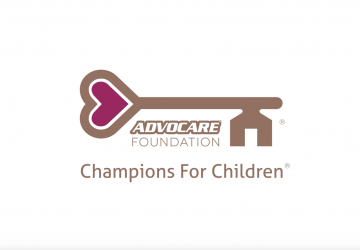What is hydration and why is it so important?
Water is essential to life. It accounts for 60 percent of our body weight. You would think with that high a percent water content our physical makeup would look a little different, right?
Water is (obviously) an extremely important and valuable resource for the body. Water is instrumental in serving major bodily functions throughout our day-to-day lives. Tweet This! Examples include, transporting nutrients and waste products to and from our major organs, regulating body temperature, lubricating joints and most notably, acting as a shock absorber during pregnancy. And did you know, water helps to provide a protective barrier around our brain, eyes and spinal cord?(1)
The term hydration means to replace water or the process of absorbing water. One of the primary reasons hydration is so important is that it prevents dehydration. Tweet This!
What is dehydration?
Dehydration is the shortage of water in the body that can result from inadequate intake of fluids or excessive loss of fluids through sweating, vomiting or diarrhea. The quantifiable way to determine if someone is dehydrated is determined by the percentage of water lost based on body weight. A person is considered dehydrated if he/she loses as little as one percent (or more) of their body weight from fluid loss.
On average, the normal person loses four percent of total body weight per day in water (or, approximately two – three liters per day).
Which means, in order to stay properly hydrated you should aim to drink at least eight (8-ounce) glasses (or, two liters) of fluid intake per day. Another good rule of thumb for suggested daily water intake is to drink the equivalent of half your body weight in ounces (of water) per day. Tweet This! If your activity level is higher, then you will require more water than the average person. (2)
For a more qualitative approach, monitor your urine. If you’re consuming adequate amounts of liquids, then most of the time, urine will be clear to pale yellow in appearance. Tweet This! A good indication that you need more water is if your urine becomes a dark yellow to light brown color in appearance. A great way to gauge hydration levels in the body is by simply monitoring your urine color. Tweet This!
When urine color is dark yellow, that’s a pretty good indicator of low hydration levels (aka you probably need to drink more water). Clear to bright yellow urine color is a good rule of thumb for adequate hydration levels in the body.
The relationship between electrolytes and hydration.
It is important to mention that when exercising, you not only lose water but also very important minerals such as calcium, chloride, magnesium, potassium, and sodium all of which are essential to human health and proper cellular function (cells are the building blocks of life). These minerals are known as electrolytes. Because these minerals are essential to normal function, they cannot be substituted for other nutrients in your diet.
Electrolytes play an integral role in muscle contraction, brain function, and daily metabolic processes. Tweet This! Electrolytes help direct water and nutrients to the areas of the body to maintain balance inside and outside cells where they are needed most, based on their positive or negative surface charges.
Now that you have a little insight into hydration, dehydration and electrolytes, here are some tips and interesting facts about hydration:
1) Water is the best way to stay hydrated, but it is not the only way. Tweet This! If you are not a water lover, you can drink a sports drink, milk, low sugar or no sugar added juices, or eat foods high in water content like fruits and vegetables.
- It is recommended to drink two liters of water for women and 2.5 liters of water for men.
- A good rule of thumb is to drink around half your body weight in ounces (150 lb. person should drink 75 ounces of water per day).
2) When exercising, it is recommended that water should be consumed every 20 minutes.
3) Have you ever wondered why your fingers wrinkle when you are in water a long time? As the epidermis (the outer layer of skin on your hand and feet) begins to swell, it pulls on live skin layers beneath causing your hands and feet to wrinkle. Scientists have also determined that this wrinkling is an adaptive measure to also help you grip on to objects better, similarly like the grooves in tires help to grip the road in the rain.
4) Although drinking water is important, too much of a good thing can be bad for you. Drinking large quantities of water in a short amount of time can cause hyponatremia. Hyponatremia is a condition that occurs when the level of sodium in the blood is too low. Not having the proper balance of sodium in the body can cause cells to swell which can lead to many health problems including death.
5) Proper hydration helps skin stay plump, minimizes pore sizes and lessens the likelihood of cracking. You can quickly check your hydration by performing the pinch test. Pinch your skin over the back of the hand. This will show skin turgor (how much fluid is absorbed in your cells). Mild dehydration will cause the skin to be slightly slow in its return to normal.
- The human brain relies on proper hydration. Tweet This! Neurons depend on water and electrolytes to function properly. When the balance of water and electrolytes is disrupted, brain cells lose their efficiency. Many experience impaired short-term memory and an inability to stay focused when dehydrated. (3,4)
- Your body needs more water when in hot climates and during physical activity. Tweet This!
- If you experience a fever or diarrhea, water intake should be increased.
- If it seems daunting to drink water, try sipping small amounts often throughout the day and eating fruits and vegetables high in water content like watermelon and grapes.
- When you feel hungry, try drinking water. Many times people mistake thirst for hunger. Tweet This!
Now, are you ready to rehydrate yourself?
References
cdc.gov
Naturalhydrationcouncil.org.uk
Ganio, Matthew S., et al. “Mild dehydration impairs cognitive performance and mood of men.” British Journal of Nutrition 106.10 (2011): 1535-1543.
Adan, Ana. “Cognitive performance and dehydration.” Journal of the American College of Nutrition 31.2 (2012): 71-78.





